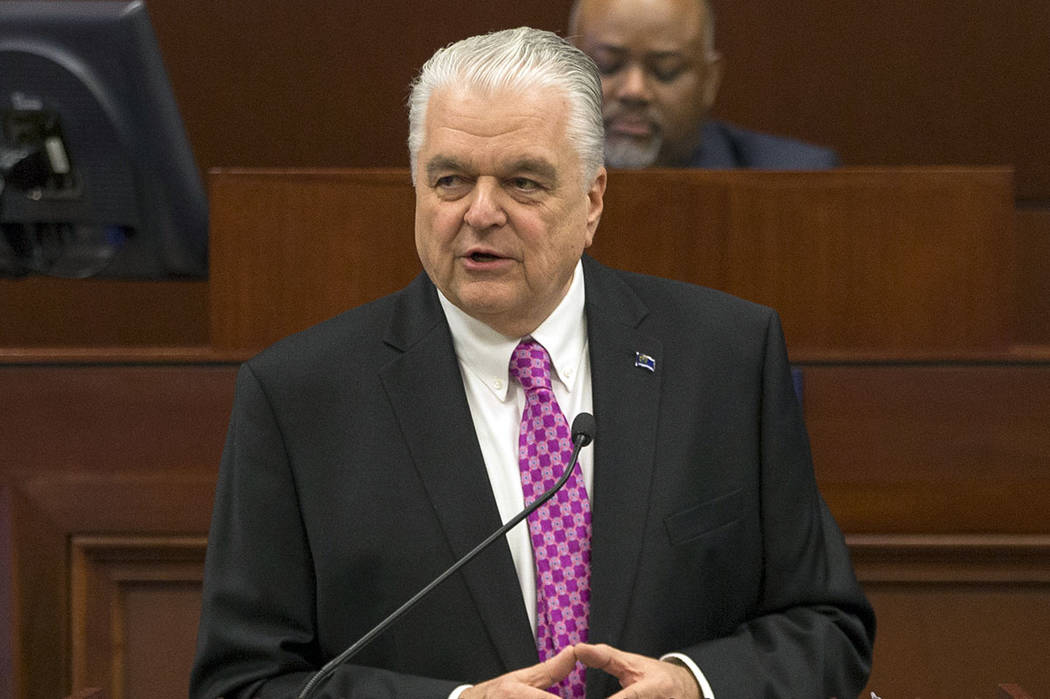VICTOR JOECKS: Democrats acknowledging need to limit collective bargaining

As the legislative session winds down, a bipartisan consensus has emerged on a most unlikely topic — the need to limit collective bargaining.
Republicans have advocated this position for decades. Democrats have generally pushed to allow government workers to bargain collectively. Under Nevada law, local public employees may do so, but not state workers.
As a Democratic gubernatorial candidate, Steve Sisolak said he’d change that. And in his first State of the State address, he said state workers “should be empowered to bargain collectively.” The Senate Government Affairs Committee sponsored Senate Bill 135 to accomplish that starting in 2021.
It’s easy to make promises. It’s harder to pay for them. Collective bargaining for state workers would cost between $250 million to $1 billion next biennium, depending on the estimate. Either way, Nevada can’t afford that massive bill.
Yet with Democrats having unified control of state government, it was surprising the collective bargaining bill remained stalled in the Senate. Late Wednesday night, we learned why. Democrats, likely led by Sisolak, were worried about the costs. So Democrats proposed an amendment that would make optional whatever financial agreement a union could secure through collective bargaining.
“Any provision of the collective bargaining agreement which requires the Legislature to appropriate money is effective only to the extent of legislative appropriation,” the amendment reads.
Translated: State workers can negotiate whatever they want, but the Legislature can still decide if it wants to pay for it.
This doesn’t make state worker collective bargaining a good idea. But it’s a de facto admission by Democrats that fully implementing their campaign promises would produce bad policy outcomes.
Then consider the new school funding formula, Senate Bill 543. There are reasons to be concerned about the bill. For instance, no one knows how it will allocate funds. The bill, however, has some great provisions on collective bargaining.
The bill prevents weighted funding from being shifted to boost salaries or to settle union disputes. Weighted funding is the extra money districts will receive for students who have special needs. This means schools have to use those funds to provide services to at-risk students. That’s the right approach. It would eventually mean hundreds of millions of dollars will go toward student services, instead of being available for what unions covet most — pay hikes.
SB543 also allows school districts to exclude a 16.6 percent ending fund balance from collective bargaining. The Clark County School District’s current ending fund balance is below 2 percent. This matters, because when the district and a union have a contract dispute, the first thing an unelected, unaccountable, out-of-state arbitrator looks at is the district’s “ability to pay.” It will take the district many years to accumulate the equivalent of two months’ savings. This gives it the upper hand in contract negotiations for potentially decades to come.
While state Democrats are mitigating the problems created by collective bargaining for areas they fund directly, they’re simultaneously imposing these problems on local governments. In 2015, the Republican-led Legislature passed a series of modest bargaining reforms to help local governments deal with runaway personnel costs. By passing Senate Bill 153, Democrats have rolled back those reforms, and Sisolak is all but certain to sign it.
This session hasn’t had much good news for Republicans, but at least there’s this: Even Democrats don’t believe their own rhetoric on collective bargaining.
Contact Victor Joecks at vjoecks@reviewjournal.com or 702-383-4698. Follow @victorjoecks on Twitter.